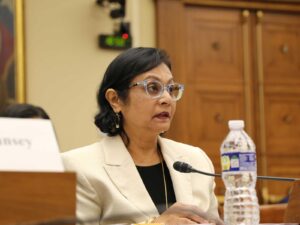
Newsroom
We’re known throughout the world for rigorous independent research that counters risks to humanity and our planet with science-based knowledge. Watch this space for insights and updates on our work at the intersection of science and public safety.
For the media
Visit our press page for media contact information, access to subject matter experts, and background on our research.
Features and Highlights
Stay informed
Sign up for updates
Knowledge and awareness about potential hazards associated with scientific innovations help in minimizing risks and promote best practices that improve safety. Sign up to learn more about our initiatives, partnerships, upcoming events, and free resources.
By submitting this form, I am opting in to receive communications from UL Research Institutes (ULRI) containing news and updates about its work and initiatives. I understand that I can manage my preferences at any time and agree to ULRI’s online policies.
Partnerships
Everyone benefits when world-class institutions work together to take on big challenges. Join us.
Grants
We’re funding scientific research to make the world safer, healthier, and more sustainable. Learn about funding opportunities.
Careers
Work to make the world a safer place. Start a rewarding career at UL Research Institutes with other socially minded colleagues focused on innovation, collaboration, and ethics.










